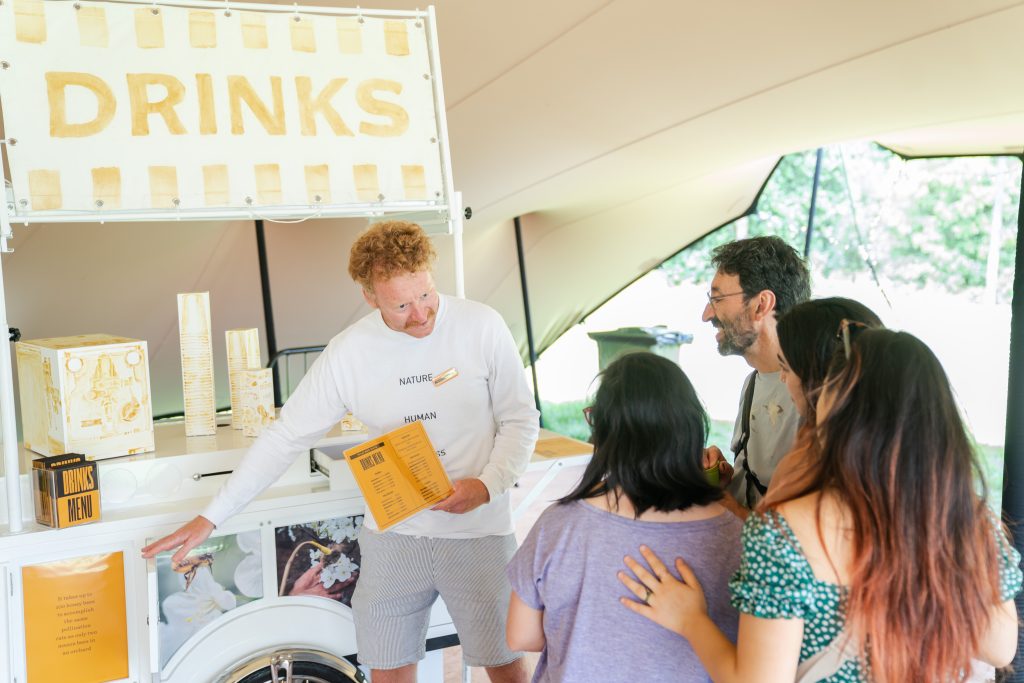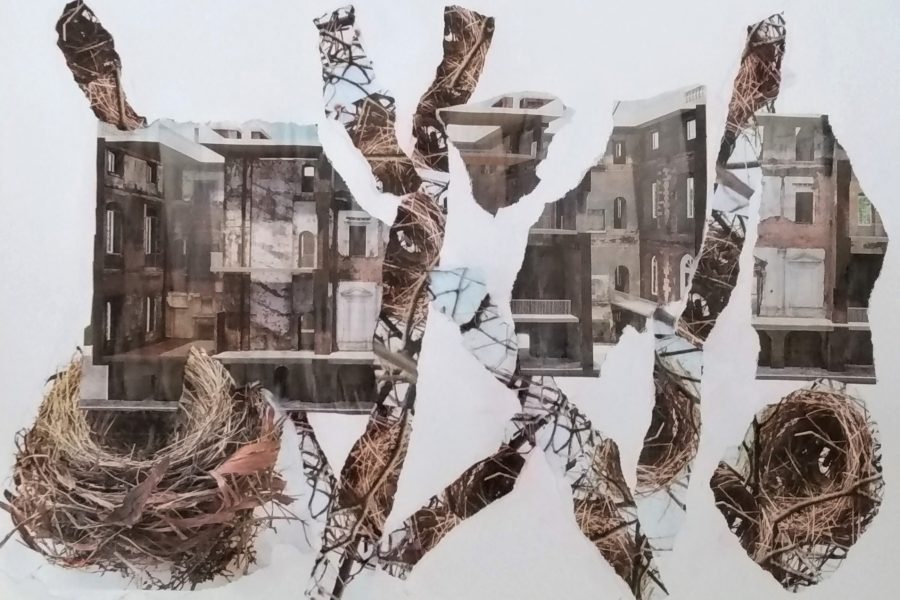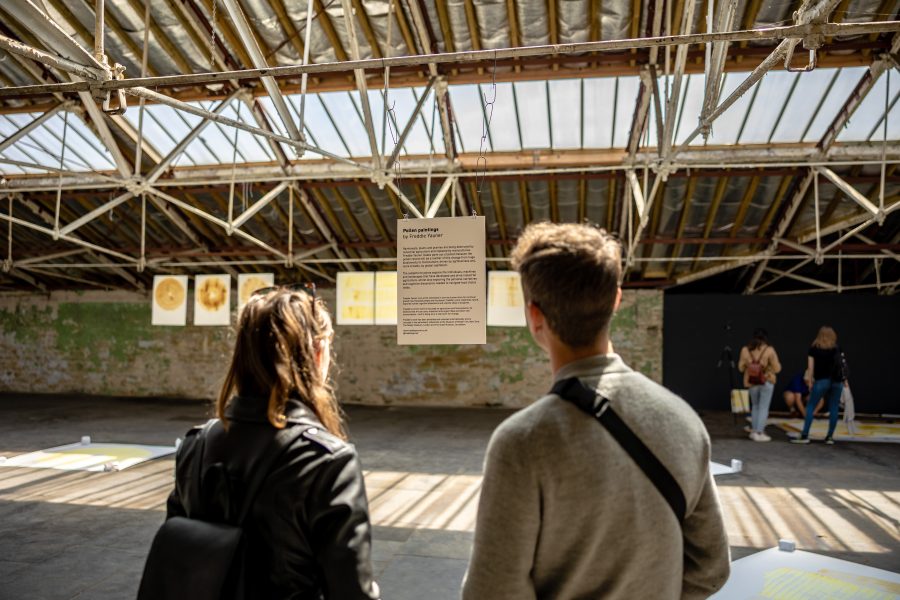In the week leading-up to Saltaire Arts Trail 2023, The Wild Bee Café will tour different parts of Shipley, encountering people as they commute to work, play in the park or go shopping.
See full list of locations above.
Welcome to Wild Bee Café – a café without coffee, tea, hot chocolate or juices.
It’s 2031 and there has been a catastrophic collapse of wild pollinating insects across the world, particularly in areas that have been intensively farmed for decades. The collapse had been predicted by scientists, but the speed caught everyone out. Alongside the devastating impact to the ecosystem, the implications on food security for humans was far reaching. After all, 75% of global crops benefit from insect pollination. The impact of pollinator loss was widespread, with sharp declines in the availability of and hikes in the pricing of consumables across the food system. Wild Bee Café was caught out, its menu greatly compromised with the loss of its core ingredients.
Wild Bee Café is a mobile drinks kiosk which plays out this scenario. Passers-by are lured in by the large DRINKS sign, only to be met with the disappointing reality of a menu where 70% of items are crossed out. The coffee machine, the stacks of coffee cups, the juice cartons and the almond milk usually found atop such a kiosk have been replaced with cubist replicas painted with pollen by artist Freddie Yauner, a sort of ghost-like reminder of the paraphernalia that we once took for granted.
The doors to the storage compartments open to reveal images, facts and figures about pollinator species, their economic value and the implications of hand-pollination as an alternative. Visitors are handed what they think is a printed drinks menu, which unfolds to reveal information about pollinators, tips on how we can support and nurture their existence as well as dystopian tales of our world if we do nothing to protect them, written by Max Fraser and verified by leading scientists.
Wild Bee Café is part of a project called Minus Pollinators, positioning a relatable situation that purposefully shocks yet stimulates a thoughtful response from visitors of all generations. A key part of the message is that there are many species of pollinators beyond the honey bee, and that we need to pay more attention to wild, native and solitary insects that are often highly-efficient pollinators that might otherwise be out of sight or considered a nuisance. In most cases, their habitat and food sources have been wiped out from intensive agriculture, chemical pesticides and urban development.
See also Pollen Paintings exhibition at Salts Mill at the Arts Trail, and during weekends in June.
This is the first collaboration between artist Freddie Yauner and writer Max Fraser, who have come together through a shared interest in the problems associated withour current food and agricultural systems. The project was originally commissioned by Royal Botanic Gardens Kew in 2022.



